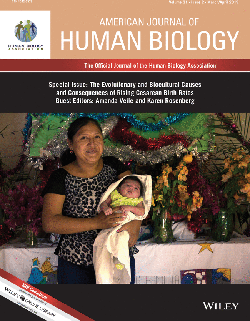LABORATORY FOR BEHAVIOR, ONTOGENY AND REPRODUCTION
LABOR is a multi-disciplinary research group directed by Amanda Veile. LABOR is dedicated to conducting ethical field and laboratory research in human biology, focused on maternal-child health. LABOR consists of a Biohazard Level 2 wet lab in Stone Hall (Purdue University) with capacity to run Enzyme Linked Immunoassays (ELISA) to measure metabolic hormones and immunoproteins in human saliva and dried blood spots. Additional dry lab spaces are equipped with computer work stations and basic and specialized anthropometric equipment for training in field-based human nutritional assessments. Internship, training, and publishing opportunities are available for undergraduate and graduate students. While most LABOR students are in Anthropology or Public Health, we invite students with aligned research interests from a variety of related fields. Meet current LABOR students here.
See my public lecture, "How Our Babies Made Us Human," sponsored by the Indianapolis Milk Bank.
Karen Rosenberg and I co-edited American Journal of Human Biology Special Issue "The Evolutionary and Biocultural Causes and Consequences of Rising Cesarean Birth Rates" has been published! Evolutionary perspectives are useful for understanding global patterns and local contexts under which cesarean birth rates inevitably rise, and to analyze cross-cultural variation in maternal-child health outcomes associated with this trend. This issue draws together reviews, original research articles, and commentary by anthropologists, biologists and health practitioners who study cesarean birth using evolutionary and biocultural theoretical approaches.

LABOR IN THE NEWS!
It's time to rethink the narrative behind "mommy brain," scientists say. Salon, 3/17/23. 'Mommy brain' might make new mothers forgetful but it doesn't last finds new study. Yahoo News, 6/24/20. Does 'mommy brain' last? Study shows motherhood does not diminish attention. AAAS Eureka Alert, 6/23/20. Does 'mommy brain' last? Study shows motherhood does not diminish attention. Science Daily, 6/23/20. Nope, ‘Mommy Brain’ Doesn't Sap Attention. Futurity, 6/23/20. C-sections are seen as breastfeeding barrier in US, but not in other global communities. Science Daily, 10/21/19. Yucatec Maya Moms Breastfeed Longer After C-section. Futurity, 3/21/2019. "Born Identity" -- The Discovery Files (NSF podcast by Bob Karson). Mayas nacidos por cesarea pesan mas hasta los 5 años (Maya born by cesarean weigh more up to 5 years), 11/4/16. Indigenous group add to evidence tying Cesarean birth to obesity, Science Daily, 10/12/16.
